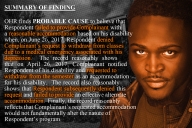You have /5 articles left.
Sign up for a free account or log in.
“Old-fashioned gender stereotyping—in particular, weighing down women with university service and mentoring responsibilities—may contribute more to this inequity.” Mary Ann Matson, Slate, 17 June 2013
The sentence above bothers me. I don’t disagree with its assessment that women’s higher levels of involvement with mentorship places them at a disadvantage against men who single-mindedly pursue publication of their peer reviewed research. Nonetheless, I find the tone irksome. If we cease to consider service and mentorship burdensome distractions and embrace them as central to the academic enterprise, I foster a - no doubt naive - hope that men as well as women might desire the opportunity to participate as opposed to buckling under its “weight.”
It’s rather like childcare. Most of the dads I know want to spend time with their kids. When birth control made childbearing a choice, women extended their dockets to include work outside the home. Men might want to “lean in” towards the hearth, but we failed to contemplate what the pill did for men when the sixties social revolution took hold. We simply assumed they would carry on as before, when many of them would like to restructure as desperately as their female partners and colleagues.
The blinders that frame emotional care as a burden and individual labor as liberation undercut our ability to reconstruct our society - whether in ivy-covered-halls or suburban subdivisions - in ways that embrace the full range of human experience and our need for one another at every stage of life.
Go to any human resources’ benefits site and it will explain options for child care, senior care, and other dependents. The assumption that any of us are at anytime fully independent underlies the policies that leave us in a daily struggle to meet our most fundamental obligations to each other. Such independence is a myth. The unabomber thought himself independent, but he desperately needed a psychiatrist.
Because our society buys into a bizarre permutation of De Tocqueville's nineteenth-century French fantasy of the supposed American character, we insist that any engagement with others is a distraction from our individual goals. That leaves us with self-defeating feminist analysis like that Ms. Matson promulgated with the best of intentions. Women are enriched emotionally but not financially by their relationships; men are as well; but more men opt out of emotional enrichment in pursuit of financial gain. That pervasive lack of appreciation for human relationships is the problem.
Marx warned workers what would happen to their monetary and social status if they gave up their means of production. Thankfully, Americans no longer own their family members. We don’t tally up kids as units of labor like Thomas Jefferson did slaves in Notes on the State of Virginia. However, when we stopped seeing families as clusters of laborers dependent upon one another to make ends meet from cradle to grave, we thought we could divest them from labor calculations entirely. Children became financial drains for whose college educations we save, but whose ability to enrich our lives with insight and meaning goes unaccounted for in business plans. If considered in board rooms, they are mini-consumers of gadgets not contributors to the common good.
Undergraduates look much the same from the berth of a tenure committee. They eat away at time needed for research and publication. However, the most distinguished academics I know share tales of the myriad ways undergraduates helped them to shape their arguments, test their hypotheses, and refine their articulation of ideas.
If we redress the balance and give all academics the time to mentor, serve, research, and write; we may just find that the emotional engagements aka service and mentoring “weighing down women” have the capacity to lift men and women onto a higher, holistic, and more productive plane.
Evanston, Illinois in the US.
Elizabeth Lewis Pardoe is a member of the University of Venus editorial collective; a contributor to The Historical Society Blog; and an associate director of the Office of Fellowships at Northwestern University, where she teaches History and American Studies. For more, follow @ejlp on Twitter or go to http://elizabethlewispardoe.com.








